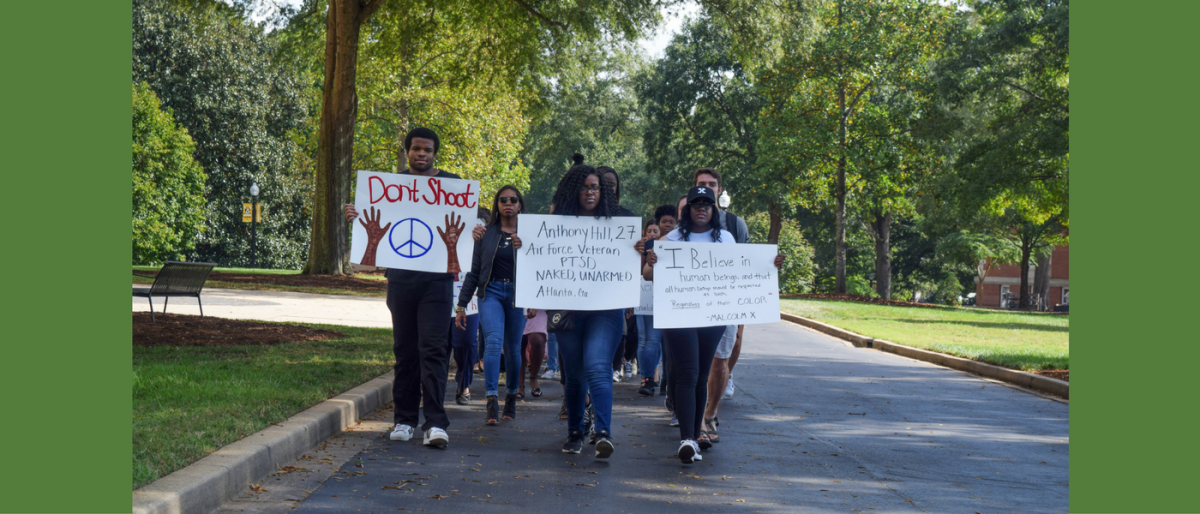By: Essence Buckman, Staff Writer
Tuesday, Oct. 4th, 2016 the Black Student Alliance held the first demonstration for civil rights on Wofford’s campus. President Aaliyah Keels ’17 gathered students, faculty and staff members together to join the organization for a peaceful silent-protest march at midday. The same evening a candle light vigil was held consisting of brief speeches, singing and prayer.
“I thought the BLM protests went extremely well,” says Keels. “It was inspiring to see faculty and students from all backgrounds support this movement. My purpose in planning these events was to show students that they, too, have a voice on campus.”
Following the murder of 17-year-old Trayvon Martin in 2012, the Black Lives Matter movement was formed. This movement was created to advocate for dignity, justice and respect for the black community. It has drawn support from a variety of backgrounds and ethnicities. Though an American movement, the Black Lives Matter movement simply states ‘stop killing black people,’ and has world-wide support in places like London, Ireland and South Africa.
“Black Lives Matter is about history and affirmation,” says Dr. Jim Neighbors, professor of English and coordinator in the African-American studies program. “Black people in America have been systematically and disproportionately targeted by law enforcement for centuries. BLM works to acknowledge that history and nevertheless affirm the inherent dignity and worth of black women and men. While BLM may lead to the affirmation of all peoples, it begins with the specific acknowledgment of the particular history of black people in the United States. BLM demonstrates the resilience and humanity of black people in the face of deadly oppression.”
According to Fredy Madrid ’20, the movement is more broad, although it is directed towards people of color. “The sole purpose of the movement is to promote that every life is equal—all humans need to have the same rights and opportunities,” he says. “As a person who is Hispanic and comes from a Hispanic background, the movement is a channel to fight injustices and communicate and promote our thoughts, beliefs and concerns.”
Harlee Cunningham ’17 discusses the statement “all lives matter” as an alternative to “black lives matter.” “The problem is that all lives do not matter right now,” she says. “All lives include black lives, and black lives are not being treated in a way that can equate them with the word ‘all.’ It’s like a repeat of the white people in power continuously trying to silence the black community within a system of injustice. Beyond just the language, I think it’s a necessary movement in its actions, and the ideas and reasons behind it all need to be heard, listened to and discussed.”
The black lives matter demonstration on campus provided black students with an opportunity to voice their feelings and opinions on recent police shootings, as well as what the Black Lives Matter movement in general signifies to them. In addition to their voices, President Nayef Samhat, Reverend Doctor Ron Robinson, college Chaplain, and Provost Michael J. Sosulski also spoke on the issue. The events opened up a conversation that deals with race, injustic and equality— a conversation that, little by little, is occurring more frequently on Wofford’s campus.
Check out our Facebook page for an album of photos from the event!






























